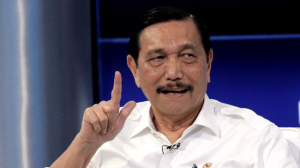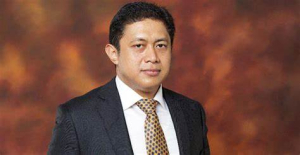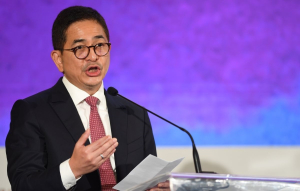Budget efficiency policy opens doors for infrastructure investment: Arsjad
The Indonesian Chamber of Commerce and Industry (Kadin) has assessed that the budget efficiency policy set by President Prabowo Subianto could open up investment opportunities for the private sector as it provides a bigger role to the private sector in infrastructure development.
"With efficiency, the government actually provides space for the private sector, this is positive. Just imagine, the infrastructure that was previously built by the government, is now offered to us to discuss which ones we can work on," Arsjad Rasjid, Chairman of the Kadin Advisory Board, said on Wednesday, February 12, 2025.
He assessed that budget efficiency carried out by the government could be a solution to the development financing needed.
"This efficiency goes hand in hand with effectiveness. For example, the free nutritious meal program has a big impact," he said.
Previously, President Prabowo instructed budget savings or efficiency in ministries/institutions. This budget efficiency policy is anticipated to have an impact on the development of the Nusantara Capital City (IKN), the work scheme of the State Civil Apparatus (ASN), to the operation of Ministry/Institution buildings, such as electricity usage.
Through Presidential Instruction (Inpres) No. 1/2025, Prabowo set a budget efficiency target of Rp306.69 trillion (US$18.7 billion), including a reduction in the ministries/agencies budget of Rp256.1 trillion and transfer funds to regions of Rp50.59 trillion.
This instruction also covers all elements of government, including ministers, the Commander of the Indonesian Military (TNI), the Chief of the National Police, the Attorney General, heads of non-ministerial government institutions, heads of secretariats of state institutions, governors, and regents or mayors.
"Conducting reviews according to each task, function, and authority in order to achieve efficiency in the spending budget," the regulation reads.
On the other hand, the budget efficiency may cause the IKN development budget to be blocked, the introduction of work from anywhere (WFA) office working system twice a week, and low electricity usage in government buildings.
Already have an account? Sign In
-
Start reading
Freemium
-
Monthly Subscription
20% OFF$29.75
$37.19/MonthCancel anytime
This offer is open to all new subscribers!
Subscribe now -
Yearly Subscription
33% OFF$228.13
$340.5/YearCancel anytime
This offer is open to all new subscribers!
Subscribe now







